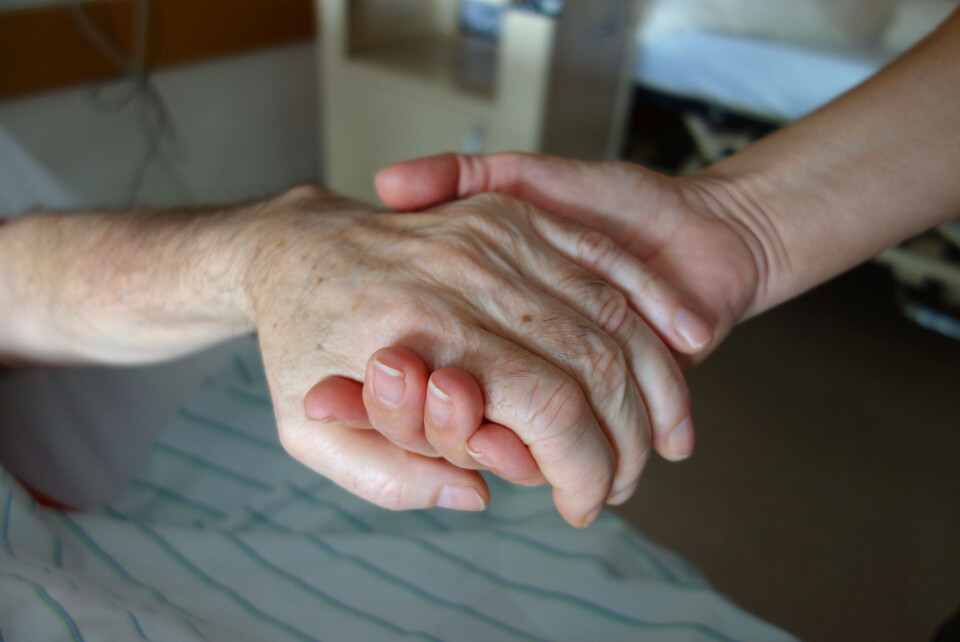-
La Voie Bleue: European Cycle Route of the Year is in France
700km bike path linking Luxembourg and Lyon has been crowned winner of the 2026 title
-
MAP: See how your location in France affects online food shop prices
New analysis shows how your shop compares on average
-
Further sightings of processionary caterpillars in France prompt action from local authorities
Caterpillars have arrived early after mild winter
Introducing euthanasia in France would be dangerous, say senators
In a report seen as a warning to the government, they also said assisted suicide would be an inappropriate response

A new report has said the introduction of euthanasia or assisted suicide in France would be “dangerous”.
The 60-page document was produced by two French senators.
Its adoption on Wednesday (June 28) by the Senate’s social affairs committee is being seen as a warning to the government, which is expected to introduce a bill on the issue in the coming months.
Read more: France to hold national debate over legalising assisted suicide
‘Inappropriate response’
The report is opposed to all forms of help-to-die options. It states that such laws would be "an inappropriate response" to patients’ expectations at the end of their lives and would be "a real challenge" from a legal point of view.
Such laws would also be “destabilising” from a "fundamental social” point of view, it added. It answered “no” to the question of whether a help-to-die law would make “our society better”.
It said that such a law would cause “considerable [legal] complexity” when it comes to defining the criteria of those eligible for euthanasia and would lead to many “legal cases” and “inevitable ulterior motives”.
Cautionary tales from other countries
It said that in other countries that have right-to-die legislation, the initial laws have all been extended in an “uncontrolled way”. It warned that in Belgium, almost “one-third of euthanasia cases are undeclared” and that research has now been necessary to investigate the “dysfunctioning” system.
It also warned against “the marketing of choosing death” and cited Switzerland - where the right to die can cost several thousand euros - as a cautionary tale.
The report also said that introducing the right to die was dangerously close to looking like a “worrying” economic decision at a time when the “weight of costs for care for an increasingly ageing society” was growing.
The report was written primarily by two senators from the Les Républicains group, Christine Bonfanti-Dossat, and Corinne Imbert, who had interviewed around 40 specialists on the matter since the start of the project last winter.
‘False choice for fragile people’
The senators said although they recognised the “social demand” for euthanasia, they said it was “a false choice” and something that only healthy people aspire to. They said that in contrast, people whose disease causes a deterioration in their quality of life actually “reinforces their desire to live”.
They said that “the most fragile people” could be pressured into euthanasia because they are “unaware of other responses that could ease their suffering” or because they fear becoming “a burden to their loved ones or society”.
They said rather than euthanasia, patients need better options, including better palliative care. Other suggestions included improving the working conditions of carers and fighting against the problems of old age, including isolation and suicide risk.
It said: “This report is more concerned with devising a form of support for a desirable life right to the end.”
Legitimate under certain conditions?
In contrast, an alternative, minority position was defended by Socialist senator Michèle Meunier, who stated: “Access to active assistance in dying is now legitimate, necessary and possible under satisfactory conditions.”
The findings tally with advice from the national consultative ethics council, le Conseil consultatif national d'éthique in September and recommendations by a fringe part of the convention citoyenne sur la fin de vie (citizens' convention on the end of life) in April. Most of the convention was in favour of right-to-die under certain conditions.
Read more: Assisted dying should be legal, concludes French PM’s citizen debate
Read more: French citizens’ council votes for assisted dying (with conditions)
The conclusions of the senate report also echo some of the language used by some care organisations that are critical to the idea, with some having said that “giving death cannot be considered as care”.
The ‘right’ to die?
The report comes at a time when the government is set to consider a right-to-die bill.
The minister currently in charge of the issue, Agnès Firmin-Le Bodo, has said that no other right-to-die laws currently in place in other European countries could be “duplicated, just as they are, in our country, for reasons linked to the specific features of our political system, our healthcare system and the long history of palliative care”.
The right-to-die lobby association, l’Association pour le droit de mourir dans la dignité (ADMD), has said that “when we speak about access to help-to-die, we are in fact speaking about a ‘right’ to die”.
Ms Firmin-Le Bodo has said she is “particularly keen to strike a balance between opening up this new right to French citizens (and) the legitimate concerns of professionals”.
France’s health minister, François Braun, has so far remained balanced on the issue, saying only that a law would “profoundly change our society and our relationship with death”.
‘A law of humanity’
In favour of euthanasia, Jonathan Denis, president of the ADMD, said: “The French-style model that the president wants could be the one suggested by ADMD, which draws on legislation in other countries that is working well.”
He said that such a law would be one of “humanity and solidarity, which would impose no obligation on anyone, including carers, due to a conscience clause".
Related articles
‘Greedy families pushing an assisted death in France is nonsense’
French woman, 100, on hunger strike for right to die
‘I have set a date to die': Prominent French right-to-die activist
























